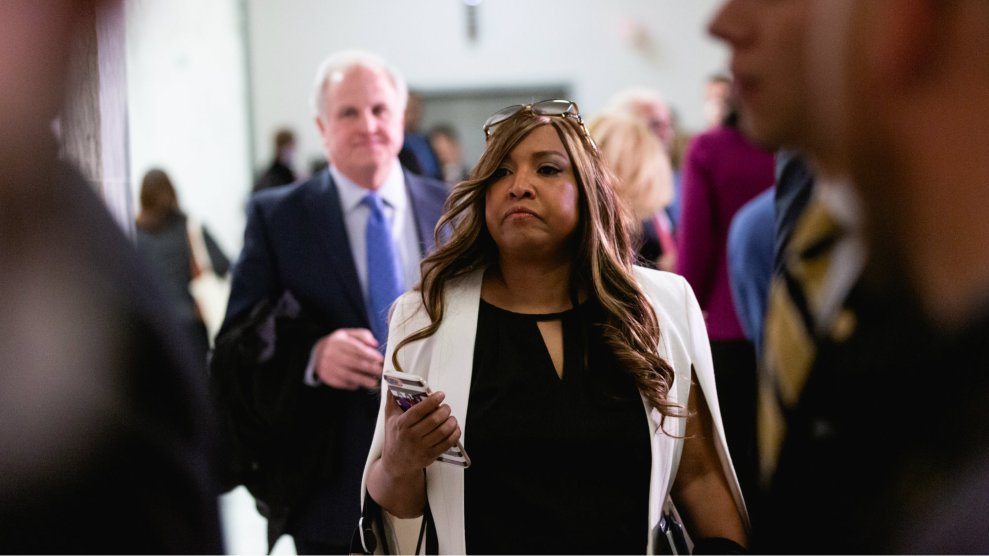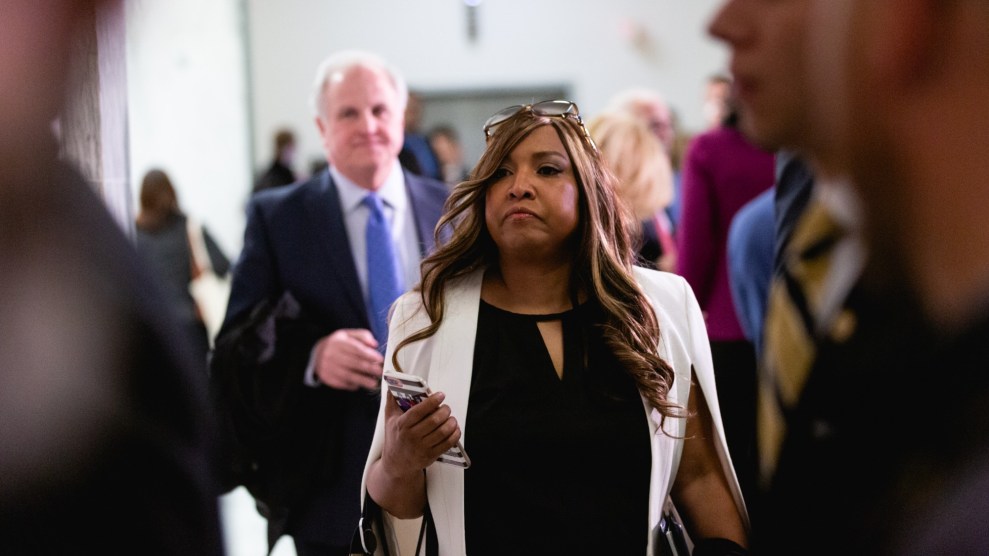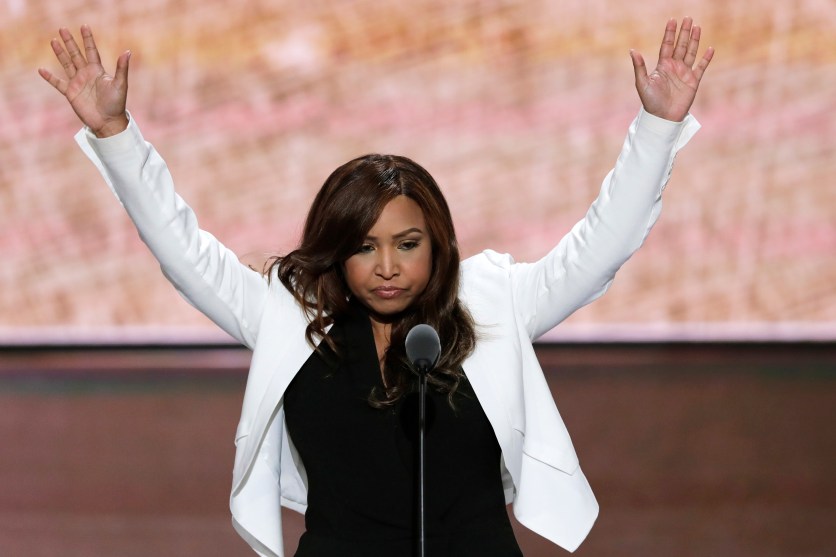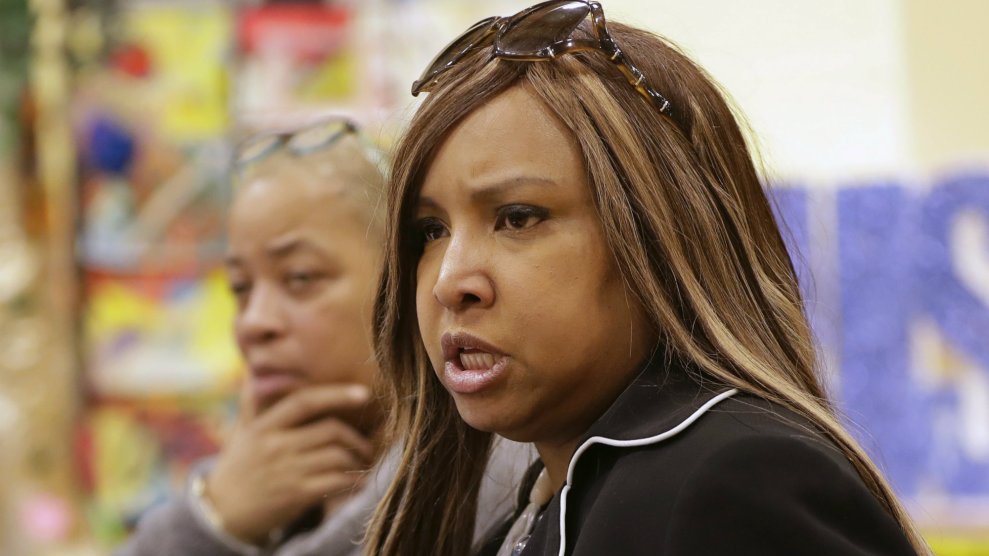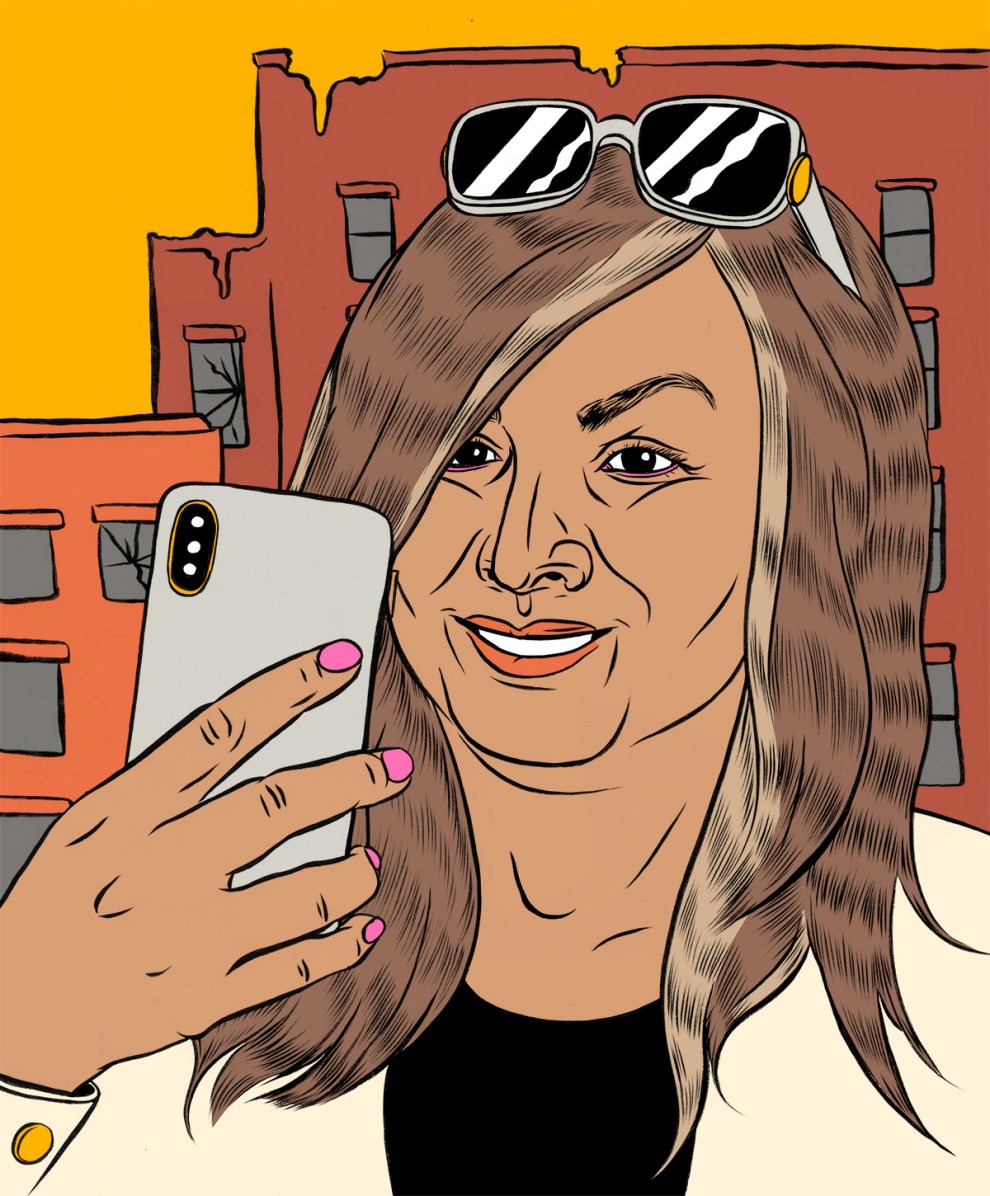
“You have not been the kindest journalist to me,” Lynne Patton told me over the phone. I could not argue with that: In reporting on her rise from Trump family aide to a key official at the Department of Housing and Urban Development, I’ve covered her one-month stay in public housing and her Instagram post scoffing at Rep. Ilhan Omar (D-Minn.). Yet as I watched Patton with fascination, what I really wanted to know was this: Is the most prominent black woman in the Trump administration for real? Or is she just playing the role of the loyal black friend in a reality TV presidency?
Black conservatives like Patton, long confusing to liberals, are positively confounding in the age of Trump. Why do they stick by a president who makes openly racist statements and inspires white supremacists? But Patton insisted that she’s worked for Donald Trump and his family for a decade and truly believes that if they were racist, “one of the children would have slipped up by now.” She continued, dropping one of her many well-rehearsed lines, “I’ve said before and I’ll say it again: Trump sees things as success or failure, not color, race, gender, or creed.”
Patton’s path to Trump family insider started in New Haven, Connecticut, a place she’s said “used to be a shithole.” Her parents are Democrats; her father, an epidemiology professor at Yale, knew Ben Carson before the brain surgeon became HUD secretary. Patton graduated from Tabor Academy, a tony boarding school, in 1991; got an English degree from the University of Miami in 1996; and enrolled at Quinnipiac University School of Law but never finished. (Her official resume listed both Quinnipiac and Yale, suggesting she’d graduated from both. She later clarified that she attended summer courses at Yale.) She worked as a paralegal before joining the Eric Trump Foundation as vice president following an introduction by Michael Cohen, the president’s then-fixer, eventually becoming a Trump family senior aide in 2012. In 2015, she was named Trump’s liaison for “minority engagement.”
When I asked her when she became a Republican, Patton invoked 9/11. “It was at that moment that I realized that patriotism was simply a punchline for Democrats. But for Republicans, it’s our lifestyle,” she told me. She voted for Obama in 2008, only to have second thoughts when he began to focus on health care reform. “I regret that vote with every fiber of my being.”
Patton first came to the public’s attention when she landed a primetime speaking slot at the Republican National Convention in July 2016. Taking the podium in a crisp white blazer, she talked about racism and black men who had been killed by police. “As a minority myself, I personally pledge to you that Donald Trump knows that your life matters, he knows that my life matters,” she said, her voice rising with conviction.
After Trump won, Patton—despite having little housing and policy experience—was appointed as HUD’s administrator for the New York and New Jersey region, home to the nation’s largest public housing agency. A front-page story in the New York Daily News misidentified her as Eric Trump’s wedding planner. When I asked her about the stubborn persistence of this dig at her qualifications, Patton shrugged it off. “The [Trump] family and I laugh about it,” she insisted.
None of this live-and-let-live attitude is evident in Patton’s outsize social media presence. Her Twitter accounts (one personal, one official) and Instagram feed are full of Trumpy indignation, lib-owning, and praise for the president. Immediately after Jeffrey Epstein’s suicide was reported, she trumpeted that he’d been “Hillary’d.” In September, the Office of Special Counsel concluded that she had violated the Hatch Act, which bans federal executive branch employees from engaging in certain partisan activities. The office reprimanded her for misusing her official Twitter account and warned her against future violations of the law.
Patton has also used her feed to recount horror stories about living in public housing run by the New York City Housing Authority and yell at its officials for their alleged failings. “The regional director is a kind of ally in seeing that the housing resources in the region are properly fed by HUD in Washington,” explains Victor Bach, the senior housing policy analyst at the Community Service Society of New York. “This is the first HUD regional director in my experience…who has been critical of NYCHA and challenging its competence.”
Much of Patton’s job involves overseeing a public housing system with enormous, long-standing problems, including NYCHA. To highlight those issues, Patton announced last November that she would spend a month living in city housing authority apartments. When she moved in early this year, some residents were skeptical—“Who the hell is Lynne Patton?” one asked a New York Daily News reporter—while others held out hope that this meant their living conditions would finally improve. In a clip Patton posted to Facebook Live, a woman in the Patterson Houses, in the Bronx, showed her a bathroom with a broken shower rod, peeling paint, and mold. Patton blamed the conditions on slow contractors seeking to “generate overtime money.”
Not surprisingly, the truth about the decay of New York’s public housing is a lot more complicated. Established in 1934, the city housing authority initially gave preference for subsidized apartments to middle-class white families. As it loosened its restrictions, its population grew poorer and browner. Today, 46 percent of NYCHA families have a working person in the household; more than 40 percent are supported by government benefits like Social Security and pensions. More than half of the agency’s 564,000 residents are under 21 or over 62, and the overwhelming majority are black or Latino.
Since 2000, the federal government has made drastic cuts to public housing. NYCHA currently needs $32 billion to restore its nearly 2,500 properties, some of which are more than 50 years old. While mismanagement has played a role in the agency’s woes, “the problem is not with NYCHA’s vulnerabilities, but with the lack of federal funding,” says Bach. “The situation has gotten worse since the Trump administration.” He notes that the president has repeatedly proposed terminating capital subsidies used for major repairs. During her public housing residency, Patton insisted that the HUD budget, which Trump had proposed to slash by 16 percent, wasn’t final. This was true—not because Trump had relented but because House Democrats would not approve his cuts.
In the middle of her NYCHA stay, Patton was summoned to Capitol Hill. Cohen, the president’s former lawyer and Patton’s ex-friend, was set to appear before the House Oversight committee and testify that Trump was a liar, a con man, and a racist. To dispute those claims, Rep. Mark Meadows (R-N.C.) invited Patton as a character witness. She stood silently behind Meadows as he told the nation that Patton, the daughter of a man from the Deep South, said “there is no way she would work for an individual who was racist.” Rep. Rashida Tlaib (D-Mich.) angrily responded that “just because someone has a person of color, a black person, working for them, does not mean they aren’t racist,” and suggested that Patton was being used as “a prop.”
Afterward, Patton went on Instagram to accuse Tlaib of playing the “race card.” On Fox & Friends, Patton asserted that believing Cohen, a white man, over her, a black woman, was the real racism. When I texted Patton about the hearing, she replied: “I was never there to represent my entire race. I was there to represent one man—the President of the United States.”
Just after the hearing, the Washington Post reported that, in October 2018, Patton had asked HUD officials for legal and ethical guidance on her apparent desire to participate in a documentary series, produced by the makers of The Real Housewives of Potomac and centered on black Republicans. Unnamed HUD officials told the Post that Patton’s proposal was rejected; she said she made her own decision not to participate. She informed me that the production company had started courting her in 2016: “Therefore, the WP’s insinuation that I am attempting to parlay my attendance at the Cohen hearing or stay in public housing into an ‘audition’ was plain silly, as they had already offered me this opportunity long ago.”
Once more, her banter seemed almost scripted. If I had any doubt of that, it evaporated when she texted: “Being a black Republican is no longer an anomaly. We grow in number by the day. Not only do we suffer the same societal hurdles that face any black man or black woman, but we also have the additional albatross of being conservative.” She’d given a nearly identical line to the Post six months earlier.
True, being a black conservative is probably harder than being a black liberal. Omarosa Manigault Newman, the former Apprentice contestant who spent a year as a White House official, said she was abandoned by her friends and received death threats for supporting Trump. Yet while Patton admits that black people confront societal hurdles, white conservative ideology does not accept the idea that black people face any special challenges—at least not any that white people don’t also face. When I asked Patton how she reconciles herself to that misalignment, she texted back: “I think the majority of black conservatives simply reject the idea that ‘victimhood’ is an acceptable lifestyle.” She continued: “Not all people of color view themselves as inferior and, therefore, are not offended by the truth—such as the President’s factual comments on long-standing Baltimore distress,” referring to Trump’s tweets calling Rep. Elijah Cummings’ Baltimore district “a disgusting, rat and rodent infested mess” that “no human being” would want to live in. The rant wasn’t a dog whistle; it was a bullhorn. But Patton couldn’t hear it.
“Black conservatives also refuse to subscribe to the ‘group-think’ ideology,” she continued. “We choose to vote based upon policy, not skin color. If that’s offensive to anyone, then that’s their problem, not ours.” She signed off with the shrugging emoji.

